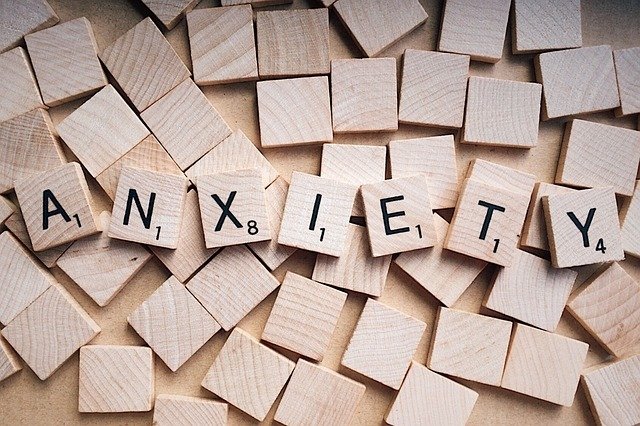How Fast Does Ketamine Work for Anxiety?1 Quick Answer Discover ketamine’s fast-acting relief for anxiety symptoms.
Anxiety is a crippling illness that affects millions of people globally. While many people receive relief from traditional medications like SSRIs and therapy, not everyone does. Once used as an anesthetic, ketamine is now a potentially effective treatment for depression and anxiety. However, how quickly can ketamine treat anxiety?
The drug ketamine, which is frequently used as an anesthetic, has drawn interest because of its potential to relieve anxiety.
Ketamine, originally developed as a general anesthetic in the 1950s, has recently piqued interest as a potential treatment for anxiety, depression, and post-traumatic stress disorder. If you’re wondering how quickly ketamine can alleviate anxiety,
Understanding Ketamine and Its Uses
- What is Ketamine? It’s a dissociative anesthetic used primarily for starting and maintaining anesthesia.
- Emergence in Mental Health: Recently, ketamine has gained recognition for its rapid-acting effects on depression and anxiety.
- Forms of Administration: Ketamine can be administered intravenously, intramuscularly, or as a nasal spray.
How Ketamine Works in the Brain
The way that ketamine interacts with the neurotransmitter systems in the brain determines how effective it is in treating anxiety. In contrast to conventional antidepressants that mainly target serotonin, ketamine works by obstructing the glutamate system’s N-methyl-D-aspartate (NMDA) receptors. Glutamate, a neurotransmitter crucial for synaptic plasticity and brain transmission, surges as a result of this blockage.
By stimulating AMPA receptors, this surge increases neuroplasticity and encourages the formation of new brain connections. This method “resets” the neuronal connections in the brain, successfully relieving anxiety symptoms quickly.
In sharp contrast to the weeks it takes for conventional medicines like SSRIs to start working, patients frequently see noticeable changes in just a few hours. Ketamine is an appealing choice for anxiety that is resistant to therapy because of its quick impact.
- Mechanism of Action: Ketamine works by blocking NMDA receptors in the brain, which leads to increased glutamate levels.
- Impact on Anxiety: This process promotes the growth of new neural connections, which can alleviate anxiety symptoms.
- Rapid Response: Unlike traditional antidepressants, which can take weeks to work, ketamine often shows effects within hours.
Treatment-Resistant Anxiety:
- Approximately 50% of people with generalized anxiety disorder (GAD) don’t respond to traditional anti-anxiety medications. Enter ketamine, which experts believe could be an effective alternative.
- Although the FDA has approved ketamine for treatment-resistant depression, it’s also prescribed “off-label” for anxiety.
How Fast Does Ketamine Work for Anxiety?1 Quick Answer
Speed of Relief: The Quick Answer
- Initial Effects: Many patients report feeling relief from anxiety within 1-2 hours after administration.
- Duration of Effects: The anti-anxiety effects can last anywhere from a few days to several weeks.
- Variability: The speed and duration of relief can vary based on individual factors like dosage, administration method, and personal physiology.
Patient Experiences and Testimonials
- Immediate Relief: Numerous patients describe a significant anxiety reduction shortly after their first ketamine session.
- Sustained Benefits: Some find that regular sessions help maintain these benefits over time.
- Case Studies: Research and patient stories often highlight the profound impact of ketamine on treatment-resistant anxiety.
Types of Ketamine Treatment:
- Intravenous (IV) Infusions: Administered in a hospital or clinic, a slow IV drip delivers ketamine directly into your bloodstream.
- Intramuscular (IM) Shots: Injected into a large muscle (like your thigh or arm), IM ketamine is another option for anxiety
How Ketamine Works:
- Ketamine swiftly ramps up glutamate activity in the brain. Glutamate, a crucial chemical messenger, influences mood, memory, and learning.
- By enhancing neuroplasticity (your brain’s adaptability), ketamine may help rewire harmful thought patterns, creating new pathways for positive thinking.
Faster Results:
- Unlike other medications that gradually boost serotonin or other brain chemicals, ketamine immediately activates glutamate.
- While traditional anti-anxiety meds take 2 to 6 weeks to kick in, ketamine can start relieving anxiety within just 2 hours.
Potential Side Effects and Considerations
- Common Side Effects: Dizziness, nausea, and dissociation are the most frequently reported.
- Serious Risks: Rarely, ketamine can cause more severe side effects like high blood pressure or heart issues.
- Monitoring: Treatment is typically administered in a clinical setting to monitor and manage any adverse effects.
Integrating Ketamine with Other Treatments
- Combination Therapy: Ketamine is often used alongside traditional treatments like SSRIs and cognitive-behavioral therapy.
- Holistic Approach: A comprehensive treatment plan may include lifestyle changes, therapy, and medication.
- Personalization: Tailoring the approach to each individual’s needs ensures the best outcomes.
Clinical Evidence Supporting Ketamine Use
- Research Studies: Multiple studies confirm the rapid anti-anxiety effects of ketamine.
- Efficacy Rates: High success rates are noted, especially in patients with treatment-resistant anxiety.
- FDA Approval: While ketamine itself is not yet FDA-approved for anxiety, ketamine (a related compound) is approved for depression and shows promise for anxiety.
The Cost of Ketamine Treatments
- Ketamine infusions are considered an off-label use of the drug, so insurance wouldn’t cover the cost.
- Each infusion costs about $500, and I’ve spent about $3,000 on ketamine treatments
FAQs
- How quickly does ketamine work for anxiety?
- Many patients experience relief within 1-2 hours after administration.
- How long do the effects of ketamine last?
- The duration of effects can range from a few days to several weeks, depending on the individual and dosage.
- Is ketamine safe for treating anxiety?
- Ketamine is generally safe when administered in a controlled clinical setting. Side effects are typically mild but should be monitored by healthcare professionals.
- Can ketamine be combined with other anxiety treatments?
- Yes, ketamine can be part of a broader treatment plan that includes other medications and therapy.
- Is ketamine FDA-approved for anxiety?
- While ketamine itself is not FDA-approved specifically for anxiety, ketamine, a related compound, is approved for depression and shows potential for anxiety treatment.
- What are the common side effects of ketamine?
- Common side effects include dizziness, nausea, and dissociation. More severe side effects are rare but possible.
- How often is ketamine administered for anxiety?
- The frequency of administration varies. Some patients may require treatments every few weeks, while others might benefit from more frequent sessions initially.
- Can anyone with anxiety use ketamine?
- Ketamine is typically reserved for patients with treatment-resistant anxiety or those who haven’t responded well to other treatments. A thorough evaluation by a healthcare provider is necessary.
- What forms of ketamine are used for anxiety treatment?
- Ketamine can be administered intravenously, intramuscularly, or as a nasal spray, with IV being the most common for mental health purposes.
- How does ketamine compare to traditional anxiety medications?
- Ketamine acts much faster than traditional medications like SSRIs, which can take weeks to become effective.
FINAL THOUGHTS:
For people experiencing anxiety, ketamine provides immediate relief, especially in cases when conventional therapies have been ineffective.
It’s an appealing choice for quick intervention because many patients see relief within hours of starting treatment. To guarantee safety and effectiveness, ketamine therapy must be administered under the supervision of a medical practitioner.











